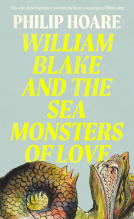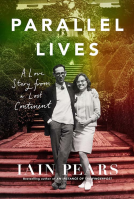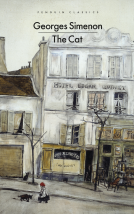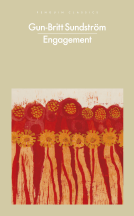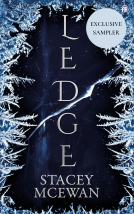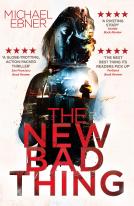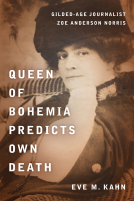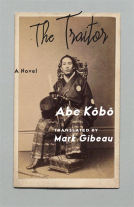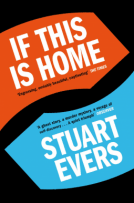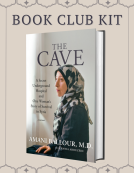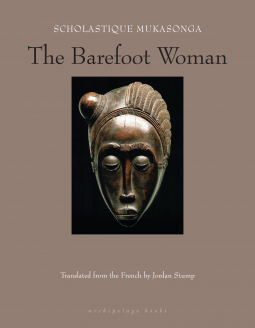
The Barefoot Woman
by Scholastique Mukasonga
This title was previously available on NetGalley and is now archived.
Send NetGalley books directly to your Kindle or Kindle app
1
To read on a Kindle or Kindle app, please add kindle@netgalley.com as an approved email address to receive files in your Amazon account. Click here for step-by-step instructions.
2
Also find your Kindle email address within your Amazon account, and enter it here.
Pub Date 18 Dec 2018 | Archive Date 14 Oct 2018
Talking about this book? Use #TheBarefootWoman #NetGalley. More hashtag tips!
Description
A moving, unforgettable tribute to a Tutsi woman who did everything to protect her children from the Rwandan genocide, by the daughter who refuses to let her family's story be forgotten.
The story of the author's mother, a fierce, loving woman who for years protected her family from the violence encroaching upon them in pre-genocide Rwanda. Recording her memories of their life together in spare, wrenching prose, Mukasonga preserves her mother's voice in a haunting work of art.
Advance Praise
Praise for Cockroaches (2017, Archipelago):
• Finalist for the 2017 Los Angeles Times Charles Isherwood Prize for Autobiographical Prose.
• "Cockroaches is vital precisely because it reconfigures not only a common understanding of the genocide in Rwanda, but privileged assumptions about peace more generally ... When she left Rwanda, Mukasonga understood that her role was 'to live in the name of others.' You get the sense that every sentence in Cockroaches bears this weight and is, therefore, a remarkable achievement." - Times Literary Supplement
• "Indispensable reading for anyone who cares about the endurance of the human spirit and who hopes for a better world. The conclusion is a stunning illustration of how precious little this courageous author has salvaged from tragedy.' - Los Angeles Review of Books
• "At our best we bear witness to the horrors of the human condition with solemnity and respect that we might learn from our collective histories and move forward together with some hope for a shared future. That Mukasonga's lyricism allows us to endure those troubling spaces with grace and wit is not just deeply moving, it's a blessing." - Words Without Borders
• "A thoughtful, sobering firsthand account of the refugee experience, a story that speaks to readers far beyond the African highlands." - Kirkus Reviews
Available Editions
| EDITION | Other Format |
| ISBN | 9781939810045 |
| PRICE | US$16.00 (USD) |
| PAGES | 160 |
Average rating from 10 members
Featured Reviews
The cover, at least of this galley I received from Netflix, looks a bit like an academic textbook, and it's not the most inviting. Don't let this shy you away from the writing inside. This is POWERFUL and it's a voice that needs and deserves to be heard. Be prepared for heartbreak from page one. This is a lived experience and the terror and anxiety of a mother protecting her children is apparent from the moment you begin, but it's also a journey of reckoning, persistence, survival and accomplishment, and a story of a mother's love.
It was actually very hard for me to read, especially as a mother. I continued in order to honor this voice, and to honor this story, and to acknowledge the horrors of genocide as well as human potential. Humans have done terrible things to each other, but we have also written beautiful stories. Thank you, Scholastique Mukasonga. I hear you.
 Reviewer 392033
Reviewer 392033
Of all the books I have read about the Rwandan genocide, this is the absolute best. Mukasonga doesn't tell the story of the genocide and doesn't outline the painful process of losing her family. Instead, her narrative focuses on the years before the genocide and centres on her mother as the core of her family. She progresses through her early life with reference to her family, their beliefs, their work and their relationships with vivid detail, which makes it all the harder to accept the end of so many lives. In bringing her family to life on the page, Mukasonga denies the rest of us the right to refer to the genocide in a desensitised manner, and to feel only shame.
 Michelle K, Reviewer
Michelle K, Reviewer
The Barefoot Woman
by Scholastique Mukasonga
Archipelago
Biographies & Memoirs , Multicultural Interest
Pub Date 11 Dec 2018
I am reviewing a copy of The Barefoot Woman through Archipelago and Netgalley:
This book is a beautiful and moving tribute to a Tutsi Woman who did everything in her power to protect her children from the Rwandan genocide, the story is told by the daughter who will not let her families story be forgotten.
In this haunting work of art Mukasonga is able to preserve her Mom's voice.
I give Barefoot Woman five out of five stars!
Happy Reading!
I have read many books that recount in detail the barbarism and tragedy of the Rwandan genocide but none as personal and powerful as this one. I found myself becoming very emotional as Ms Mukasonga told the story of her mother's mission to keep her children safe from harm. This is a moving and heart-wrenching memoir that is not only about terror, fear and persistent anxiety about what may be coming around the corner, but it's also about survival, determination and love.
Instead of focusing on the horrors of the 1994 genocide which in effect was an attempt to exterminate every Tutsi in the country in the same way the Nazi's sought to kill all Jews, The Barefoot Woman is about the years leading up to the genocide and Mukasonga's daily experiences with those preceding decades. This is one of the most inspirational stories I've had the pleasure to read in recent years, it illustrates the unshakeable commitment to keeping her family together and to living despite adversity and the brutality and hardship of ethnic conflict. It is not an easy read by any stretch of the imagination, but I feel it's important for these special voices to be heard.
Many thanks to Archipelago for an ARC.
 Kristen M, Reviewer
Kristen M, Reviewer
This was a brutal book to read. It was so hard to read it and then realize that almost everyone in it was in the past tense, because they all died during the Rwandan genocide. It was a different kind of book about the genocide than others I have read, in that it is written a decade or so after the fact, and is about the time before it. It is a very powerful read.
 Mandy J, Reviewer
Mandy J, Reviewer
Scholastique Mukasonga writes so well that anything from her is sure to be a joy to read, in spite of the harrowing subject matter, and this slight memoir is no exception. Whereas her earlier two books, Our Lady of the Nile, and in particular Cockroaches, which is a searing indictment of the Rwandan genocide and quite unforgettable in its depictions of the violence meted out by the Hutus, tackle the subject head on, this time she has decided on a gentler, more elegiac tone. The violence is there, but kept more in the background. Now she has chosen to concentrate on her childhood and in particular her mother, whose one aim in life was to try to keep her children safe. It’s a loving and tender memoir, all the more powerful in that we know what dangers are looming on the horizon. It’s a fairly unstructured book, with much about the traditions and culture of the Tutsis, and it gives a vivid portrayal of what day to day life was like. Taken all in all, Mukasonga’s books are important and powerful works of witness and this one certainly adds to that legacy.
 Susan D, Reviewer
Susan D, Reviewer
Having read both Our Lady of the Nile and Cockroaches also by Scholastique Mukasonga, I was pleased to receive the ARC for this loving remembrance of her mother, her family, and a lost way of life. While the other books dealt with the background and events of the genocide in Rwanda, this memoir provides a portrait of the author’s childhood, after the Tutsi population was moved beyond the river, away from the dominant Hutu.
Maybe the Hutu authorities put in charge of the newly
independent Rwanda by the Belgians and the Church were
hoping the Tutsis of Nyamata would gradually be wiped
out by sleeping sickness and famine. In any case, the region
they chose to send them to, the Bugesera, seemed
inhospitable enough to make those internal exiles’ survival
more than unlikely. And yet they survived, for the most part.
...And little by little the ... makeshift huts became villages....
But...soldiers of the Gako Camp, built between the villages
and the nearby border of Burundi, were there to remind them
that they were no longer exactly human beings but inyenzi,
cockroaches, insects it was only right to persecute and in the
end to exterminate. (loc44-52)
This is the background of the memoir and the author’s young life. Of course her memories are colored by all that she knows has happened since, the heavy weight of loss.
The leading light of her young life was her mother, a force of nature in her family who seems to have been so in the village also. While she prepared them for the possible future army attacks, she also continued with normal life, managing the fields and crops and seasonal traditions and her role as village matchmaker. She also told age-old folk tales to her children some of which Mukasonga passes on to us.
She valued education which is why Scholastique was not with her extended family when the end came. She was out of the country in college. This memoir is full of love, sadness, regret, and so much loss. The mention of her newly married brother and her mother’s wish for many healthy grandchildren is just one.
This is an important part of the writing about Rwanda. I recommend it, along with the works I have mentioned above, for a personal view of what happens to marginalized people when societal rules no longer control the majority. This is
also a good picture of what can happen at the end of colonial systems when the “overseeing” entities, here Belgium and the Catholic Church, appear to look away from what is happening.
A copy of this book was provided by Archipelago Books through NetGalley in return for an honest review
 Reviewer 68310
Reviewer 68310
A more intimate and personal visit to the events around the Rwandan genocide than I've ever encountered. There's a sort of inevitability to knowing that this mother was ever going to be able to survive but Scholastic really focuses on love and tenderness so this was one of the more feminine novels about war I have ever read. I also really particularly liked how much detail there was about everyday life and the details lost in war.
 The Idle Woman ., Reviewer
The Idle Woman ., Reviewer
Scholastique Mukasonga's mother used to tell her daughters that it was their duty to cover her when she died. By shrouding her body in a pagne, the colourful wrapper worn by both women and men, they could preserve decency and allow her soul to safely move on to the next stage of its journey. But Mukasonga was living far away in France when her mother was horrifically murdered, alongside her sisters, brothers, neighbours and friends, in the Rwandan genocide of 1994. Unable to fulfil her mother's wish, Mukasonga instead pays tribute to her with this extraordinary memoir. It is a celebration of one remarkable woman, but also of all the women whom Mukasonga knew as a girl: the energetic, creative, passionate, devout neighbours who helped an exiled community to maintain its dignity in the face of racial hatred, and who fought to give their children as normal a life as possible in a world where nothing was normal any more. Blessed with a lyrical and eminently readable translation by Jordan Stump, this little slice of vanished Rwandan life might just end up being one of my books of the year.
Mukasonga's family were among the Tutsi who were displaced internally within Rwanda by the Hutu authorities. They relocated in 1959 to Gitagata, a village near the town of Nyamata in southern Rwanda. If the name 'Nyamata' sounds familiar, it's because this is where one of the worst atrocities of the genocide would take place in 1994, when 10,000 people were massacred inside the church where they had taken safety. Thousands more were slaughtered afterwards in the local area. The church is now one of Rwanda's six genocide memorials, where around 45,000 people are buried. But, although the horror of the future is omnipresent in Mukasonga's work, it is subtle, only occasionally flickering beneath her memories of her childhood and coming to the fore more rarely still. The book is on a very intimate scale (a 'child's eye view'), rarely making its way outside Gitagata and focusing on the lives of women and children in the village. Men rarely appear: if they are fathers of families, they are off busy doing whatever it is men do when the pride of herding their own cows has been taken away from them - and if they are younger, they are often the object of matrimonial scheming among the village women. Mukasonga's mother Stefania holds a position of great power within the community, as one of its matchmakers, and so the neighbourhood women often seem to congregate in her back yard to debate the issues, problems and challenges of the day.
There is a very clear divide between men and women in this world. Men seem to be in charge of external relations - with other communities; with the authorities; and, perhaps most significantly, with the Fathers who run the Church. It's the Church who offer baptised children the chance to attend their school and enjoy the fruits of what Mukasonga calls - never without irony - 'civilisation'. Men, including Mukasonga's own father, seem to be more interested in progress and in adopting new ways of doing things. Women, on the other hand, seem to be in a constant battle to remember, and to preserve their traditions. Stefania is a devout church-goer, but maintains an elegant dual devotion both to the Christian God and the spirits of her ancestral world. She is the one who oversees rituals; who brings up the children to know who they are and where they came from; who practises traditional medicine as a way to keep her family safe. She oversees the tending of the sorghum field behind their house and manages the production of sorghum paste, porridge and beer. And she is the one who insists on a traditional Rwandan house, an inzu, being built in the yard behind the ugly prefabricated Western-style houses given to the exiles on their arrival in Gitagata.
The inzu is not simply a shelter. It means that the family can live as they are supposed to live; as their ancestors lived before them. Constructed with the aid of the community, its round shape and woven roof is at the heart of Rwandan culture and tradition. It is a woman's job to keep her inzu in order, and Mukasonga describes Stefania's commitment to doing things properly. She would be up first thing in the morning to check that the glowing embers of the central fire hadn't gone out ('it's shameful for sunrise to find a mother still in bed', reports Mukasonga), and to borrow fire from neighbours if it needed to be lit again. But not too often, for 'a woman who comes asking for fire from her neighbors too often is soon criticized. People say: "That woman can't even manage to keep a fire going, she's a bad wife!"). Stefania's determination to uphold tradition even baffles her son Andre, who asks why she goes round to neighbours to borrow fire when they own a perfectly good box of matches. His mother's response is characteristic: 'the white people have given us so many gifts, and look where it's gotten us! So, when I have to, let me go looking for fire just as we've always done here. At least that's one thing we have left.'
That's the most endearing thing about Stefania, in my eyes: her desire to preserve the traditions of her people in a place that would have made it so easy to give up. But this focused, smart, determined woman sets out to make sure that her children have the traditional rites of passage and that they are well trained. In one chapter, she tries to understand why Mukasonga and her sister can't manage to get home without cutting their feet to shreds (everyone goes barefoot). Deciding that their toes must be taught to open their eyes, she devotes long hours to shining a torch in front of their feet, hoping to educate their toes - but with no success; Mukasonga's toes, at least, keep their eyes resolutely closed. In another, she and her neighbours decide to help out Claudia, a deserving girl with no husband, by resorting to a gleeful mixture of trickery and public shaming in order to make sure that things go the way they want. Yet Stefania doesn't insist on traditions in order to keep her daughters down. On the contrary, she is determined that they will be properly educated ('evolved' is the world Mukasonga uses to describe someone who can read and write). And, when they come home from school talking about the benefits of wearing underwear, or using indoor latrines, Stefania listens, thinks about it and - if she thinks it worthy - adopts the practise. She is a wise, pragmatic woman for all her insistence on tradition. Mukasonga writes of her with great affection and often with humour, but never, never makes fun of any of the traditions. These things are precious, to be preserved: such is the purpose of this book.
Normally I would try to include some highlighted passages, but there are far too many here and most of my highlights encompass entire pages, where Mukasonga conjures up the compelling flavour of traditional Rwandan life. I was warmed by descriptions of Rwandan beauty standards, which celebrate sturdy thighs, rounded limbs and a gait like a cow (I can definitely have a shot at the latter). And I loved the dignity and authority with which Stefania and her friends make sure that the community is working as it should. Whole pages can go by in a charming nostalgic haze, like Cider With Rosie or perhaps one of the No. 1 Ladies Detective Agency novels, helped along by Stump's gloriously readable translation. Then, with a jolt, you'll be reminded of the horrific realities of the situation. There's an opportunistic raid by soldiers, or a young woman is raped, and you remember that Stefania and her children are living a life in which they're encouraged to see themselves as the lowest of the low, less than human, the rightful targets of hatred and abuse. Fortunately, this marvellous woman doesn't listen to a word of it. With grace, strength and obstinacy she raises her children as best she can in an unsympathetic world; and you love her for it. With this compassionate and beautiful memoir, Mukasonga has done her mother and the rest of her community proud.
I don't think I've ever read about Rwanda before and was utterly captivated by Mukasonga's descriptions of traditional life; she's a superb guide. I now really want to read her other works, which delve more deeply into her childhood and the horrific circumstances of the Rwandan genocide: Cockroaches, which describes the racial suppression of the Tutsi people (also translated by Stump); and Our Lady of the Nile, a novel based on her experiences at a Catholic girls' school (translated by Melanie Mauthner). Both are also published by Archipelago.
This review will be published on my blog on 2 August 2019 at the following address:
https://theidlewoman.net/2019/08/02/the-barefoot-woman-scholastique-mukasonga
Readers who liked this book also liked:
Philip Hoare
Arts & Photography, Biographies & Memoirs, Nonfiction (Adult)
Pirkko Saisio
Biographies & Memoirs, General Fiction (Adult), Literary Fiction
We Are Bookish
Biographies & Memoirs, Health, Mind & Body, Nonfiction (Adult)
